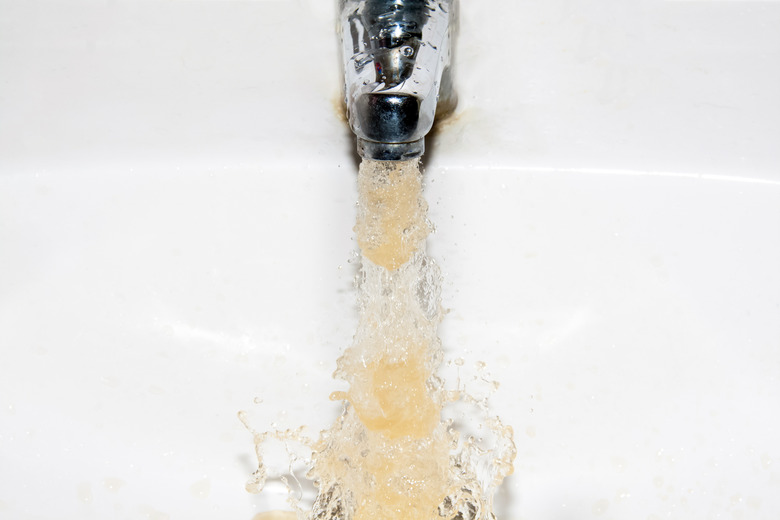What Causes Rusty Hot Water?
Sometimes when we get discolored water, it comes from both the cold and hot taps, but occasionally we see that, for some reason, something is causing only rusty hot water. No matter which water is off-color, it's dismaying, because we want what comes out of our taps to show up crystal clear and sparkling. So, it's never a good moment when all you get is rusty-brown yuck.
Causes of Rusty Water
Causes of Rusty Water
If rusty water is coming from both hot and cold taps without clearing up, the problem is coming from your city's water system. It's possible that water hydrants are being flushed, but it can also be that an aging, rusting water main has broken open and will need to be fixed by your local water authority. Make a point of giving them a call if you experience such a problem.
If your cold water runs rusty at first, then clears up, it's likely that you have corroding pipes in your home's plumbing system. This generally applies only to galvanized steel water pipes, which corrode on the inside of the pipes and increasingly restrict water flow over time. Consult with a plumber if you suspect this is your problem. The pipes should be replaced, preferable sooner rather than later.
When, however, rust shows up only when you turn on the hot water, it's time to take a look at your water heater, which may will definitely need replacing before long.
Rust From the Water Heater
Rust From the Water Heater
A rust problem that stems from your water heater often can be alleviated but only temporarily. First, try draining and flushing out your water heater tank. Because lots of rusty sediment can build up within a tank over time, this job should be performed twice a year. If you're not a do-it-yourselfer and don't want to tackle it yourself, call a plumber.
If your hot water still shows rust after draining and flushing, your problem may be resolved only by installing a new water heater, and given the average unit cost of $300 to $2,000 for water heaters that last from eight to 12 years, you may want to make an effort to keep up with regular maintenance.
Another step to take to head off corrosion and lengthen the life of your water heater is to replace the unit's anode rod. The anode rod attracts corrosive particles to keep them from interacting with the tank and causing corrosion. In the process, the rod itself, which lasts about five years, gets eaten away, resulting in the tank becoming the target of the particles. It's when the particles begin to corrode the tank that rust sediment begins to collect at the bottom of the unit.
Is Rusty Hot Water Unhealthy?
Is Rusty Hot Water Unhealthy?
No doubt the first thing you'll think when rusty hot water pours out over your toothbrush is that you'll probably get sick if you are exposed to it or ingest it. In fact, the U.S. Environmental Protection Agency states that there's really little need to worry. Water containing rust from iron is regulated under what the agency considers secondary standards, which rule that iron contaminants above 0.3 milligrams per liter that cause discoloration, metallic taste, sediment, and rust-colored staining may render the water undesirable, but don't make it unsafe to drink.
